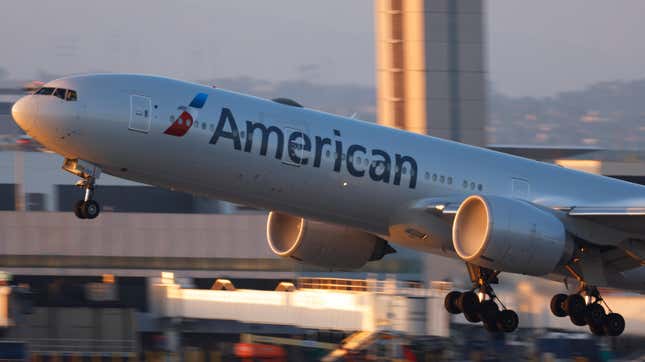
In This Story
Flight attendants at American Airlines (AAL+0.15%) just ratified the union contract they won in July. Their pay will be going up by more than a fifth thanks to the agreement, which was approved by 87% of ballots and negotiated by the Association of Professional Flight Attendants, which represents them.
“This contract marks a significant milestone for our Flight Attendants, providing immediate wage increases of up to 20.5%, along with significant retroactive pay to address time spent negotiating,” Julie Hedrick, the union’s national president, said in a statement. “Among the many improvements, the contract includes a new sit rig for compensation for long sits between flights, and American Airlines Flight Attendants become the first unionized workgroup to lock in pay for boarding.”
That last point is an especially noteworthy development, since flight attendants for years have complained that they are unfairly asked to work for free because they’re often not technically on the clock until the doors of their planes close.
“It’s an exciting day for American’s nearly 28,000 flight attendants and our entire airline,” American Airlines CEO Robert Isom said in a statement. “Reaching an agreement for our flight attendants has been a top priority, and today, we celebrate achieving this important milestone. Both the APFA and company negotiating teams had a shared mission of delivering an agreement our flight attendants have earned, and I greatly appreciate their work and relentless focus.”
After five years of negotiations, the AFPA’s members at American came very close to going on strike, with 99% in support of doing so. But labor law concerning flight attendants is different from other labor groups, requiring federally mediated bargaining sessions before work stoppages can take place. On the one hand, that limits the tactics available to such workers. On the other hand, it keeps companies at the bargaining table because the government is so reluctant to unleash the potential disruption to airlines.
“Special thanks to National Mediation Board (NMB) member Linda Puchala, Acting Secretary of Labor Julie Su, and Transportation Secretary Pete Buttigieg for their efforts to move this deal across the finish line,” Hedrick said.